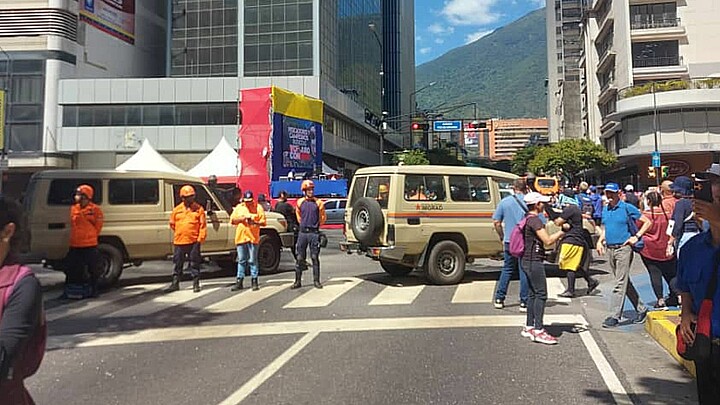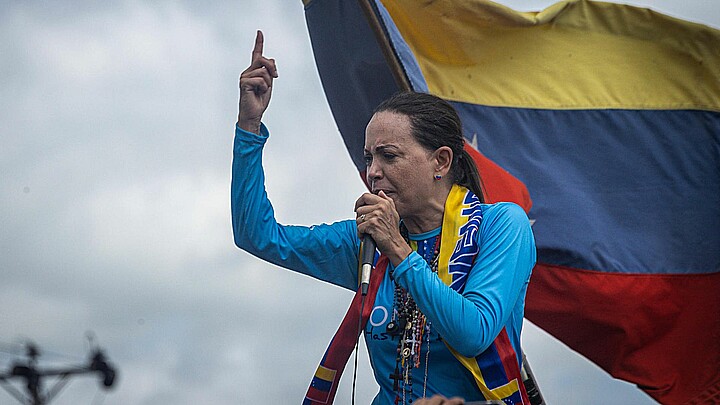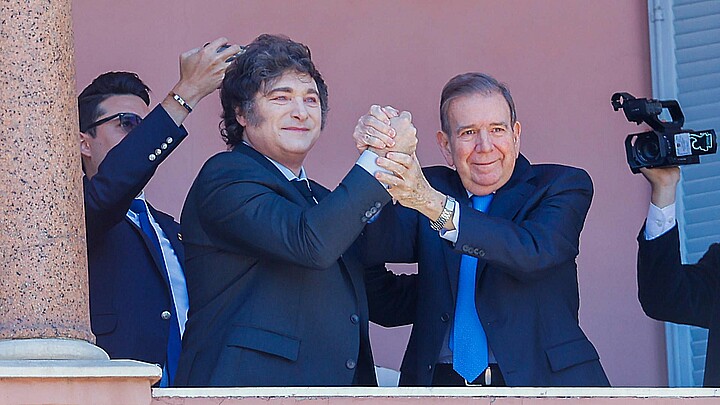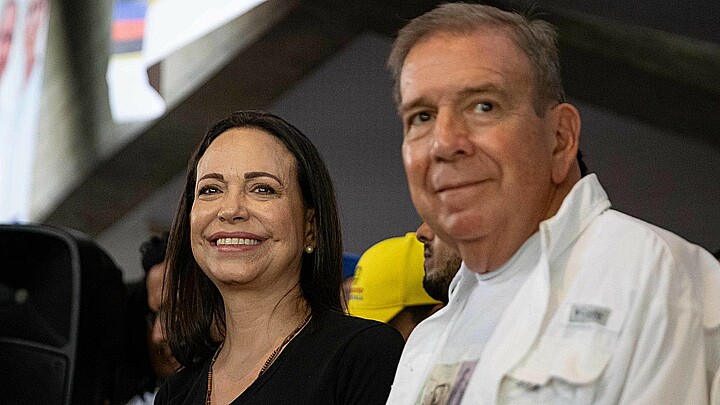Politics
Guyana rallies support to oppose Maduro's war plans after invasion referendum, president assures "nothing to fear"
Nicolas Maduro wants to annex a Guyanese territory and create a new Venezuelan state to seize its neighbor’s oil reserves

December 4, 2023 1:38pm
Updated: December 5, 2023 8:29am
In a move reminiscent of Saddam Hussein’s illegal 1990 invasion of oil-rich neighbor Kuwait, communist dictator Nicolas Maduro is aiming to invade its southeastern bordering nation-state, Guyana.
The communist dictator, who has ruled Venezuela with an iron grip since 2013, wants to establish a new Venezuelan state in the territory known as Essequibo as a means of seizing Guyana’s oil reserves.
Experts also believe he is using the prospect of war to distract the public from his diminishing popularity.
President Irfaan Ali immediately took to social media and reassured his citizens that the government would protect their borders.
“There is nothing to fear,” he wrote on Facebook.
To show their support, hundreds of Guyanese citizens made an appearance at the country's National Stadium in Providence, waving flags in an effort to deter their communist neighbor from advancing invasion plans.
“Last evening, President Dr. Irfaan Ali joined thousands of Guyanese at the National Stadium, Providence for an Evening of Patriotic Reflection as Guyana stands united in defense of its sovereignty and territorial integrity,” the president’s Facebook page reads alongside several photos of hundreds of Guyanese citizens waving their national flag in support.
Last year, ADN reported that Venezuelans sought to reactivate their country’s recall process to remove the communist dictator from office.
The justify his illegal invasion plans, the communist dictator held a referendum vote that asked Venezuelans how they felt about the status of a long-disputed oil-rich territory long controlled by Guyana.
As usual, those who did show up to vote backed Maduro’s communist party aims, resulting in a 95% approval rate. ADN America has repeatedly reported on Venezuela’s rigged election system and how the dictatorship in Caracas uses a ballot monitoring process, rewarding those who vote in his favor with food ration stamps and denying those who vote against him.
Maduro and his communist led congress has also made false promises to invite outside observers to hold free and fair elections but has a pattern of reneging.
Maduro’s regime is now claiming that more than 95% support invading their neighbor to the establish of a new Venezuelan state in the territory known as Essequibo. The territory was originally administered by British Guiana but has been governed by Guyana throughout the twentieth century.
The so-called “referendum” is already raising concerns in Guyana, whose sovereignty is protected under international law. It was once considered a British colony but declared its independence from the United Kingdom as a dominion in 1966 and established itself as a republic in 1970.
The disputed Essequibo 61,600-square-mile region makes up two thirds of the total land controlled by Guyana.
In a long running dispute that dates to the nineteenth century, Venezuela has asserted the land is theirs.
The South American country’s assertion stems from an 1899 decision made by an international arbitral tribunal to award the territory to England, and the matter was raised in the First Assembly when the United Nations was established in 1945.
Since then, the matter has languished before the International Court of Justice, and Venezuela has refused to recognize the authority of the International Court of Justice in resolving the Essequibo dispute.
Maduro’s referendum asked five questions, but the most important on the ballot was the fifth question which simply asked Venezuelans if they supported “the creation of the Guyana Esequiba state” and its “incorporation into the map of Venezuelan territory.”
Reports indicate the communist dictator pressured citizens to turn out to vote “five times 'yes'" to the five questions on the ballot about the legal status of Essequibo.
Maduro’s Election have since asserted that 95.9% of voters cast a “yes” vote to that question, prompting Guyana’s president, Irfaan Ali, to accuse Maduro of rallying a war cry.
The neighboring president’s declaration did not deter his communist counterpart however, who declared the ‘election’ results as “an overwhelming victory.”
“We have taken the first steps of a new historic stage in the struggle for what belongs to us, to recover what the liberators left us,” the 61-year-old Maduro said to his countrymen in an effort to rally support.
Some reports suggested the election vote could have been legitimate since many. Venezuelans legitimately feel passionate about the issue.
“The overwhelming support shown by voters had been widely expected as Venezuela's claim of sovereignty over Essequibo has very broad support in the country,” wrote the BBC in a Dec. 4 report.
BBC suggested the nation’s genuine support for the annexation was “reflected in the fact that there was no campaign for a ‘no’ vote.”
Despite this, opposition members and journalists have reported that many polling stations were relatively quiet, and there was little visible voting activity.
Maduro’s referendum comes eight years after ExxonMobil discovered oil off Essequibo's coast in 2015.
The discovery increased Venezuela’s interest in the region, and tensions heated this year after Guyana began auctioning exploring licenses to oil companies.
The United Nations has since admonished the communist dictatorship not to take military action.











